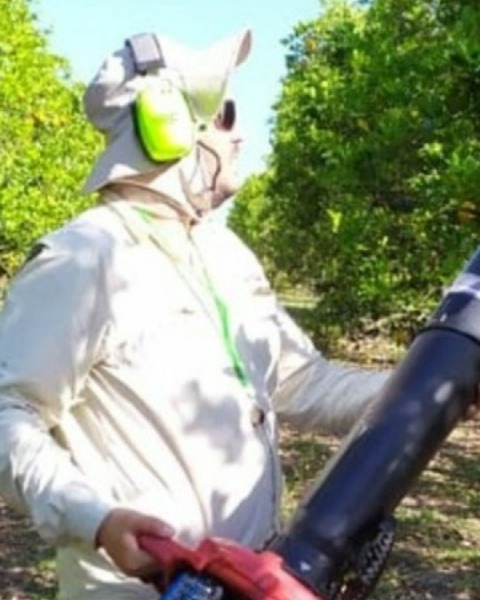P-IE
10-Minute Paper
10-min: P-IE, Biocontrol
Integrated pest management for Asian citrus psyllid (Diaphorina citri)
On-Demand
- JQ
Jawwad A. Qureshi
University of Florida
Immokalee, Florida 
Gabriel Rodrigo Rugno
UF / IFAS - Southwest Florida Research and Education Center
Lehigh Acres, Florida
Presenting Author(s)
Co-Author(s)
Asian citrus psyllid (ACP) is the primary vector of an economically important huanglongbing (HLB) disease of citrus. Frequent use of conventional insecticides negatively impacts ACP populations and beneficial insects useful for suppressing ACP and several other citrus pests. Another concern is the insecticide resistance already observed in ACP against several products. Integrated Pest Management (IPM) programs that control ACP and are useful to conserve and augment beneficial insects are needed for sustainable production systems. Four IPM programs to determine the impact on ACP and beneficial insects are implemented, including 1) conventional and organic insecticides plus biological control, 2) organic insecticides and Horticultural Mineral Oil (HMO) plus biological control, 3) conventional insecticides plus biological control, and 4) HMO plus biological control. Program 5 is biological control only. ACP and predators were monitored in all programs, and insecticide sprays applied at the treatment threshold of 0.1 ACP adults per tap sample. Nymphal parasitoid Tamarixia radiata was released in all programs. ACP suppression was more in programs 1 and 3. The contact effect of some of the conventional and organic insecticides, such as Delegate and Entrust, resulted in 98-100% mortality of ACP adults at 24 h, whereas HMO caused 85% mortality. Cohort studies on ACP nymphs across all programs revealed an adult emergence of 19-41% in the colonies exposed to the natural mortality factors compared with 62-92% in the protected colonies, suggesting a strong influence of biological control. Spiders and the lacewing, particularly Ceraeochrysa cubana, were common in all programs.

